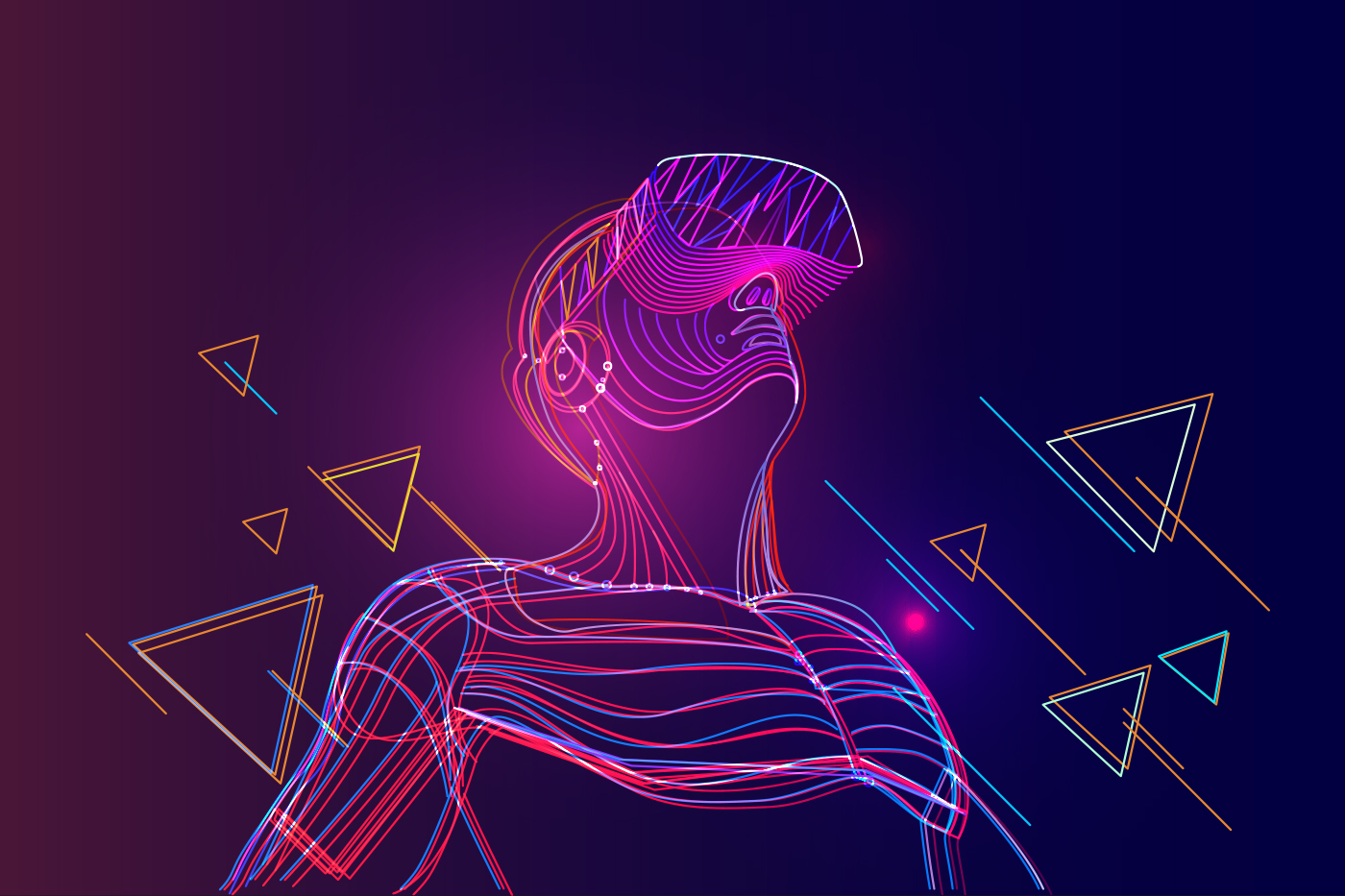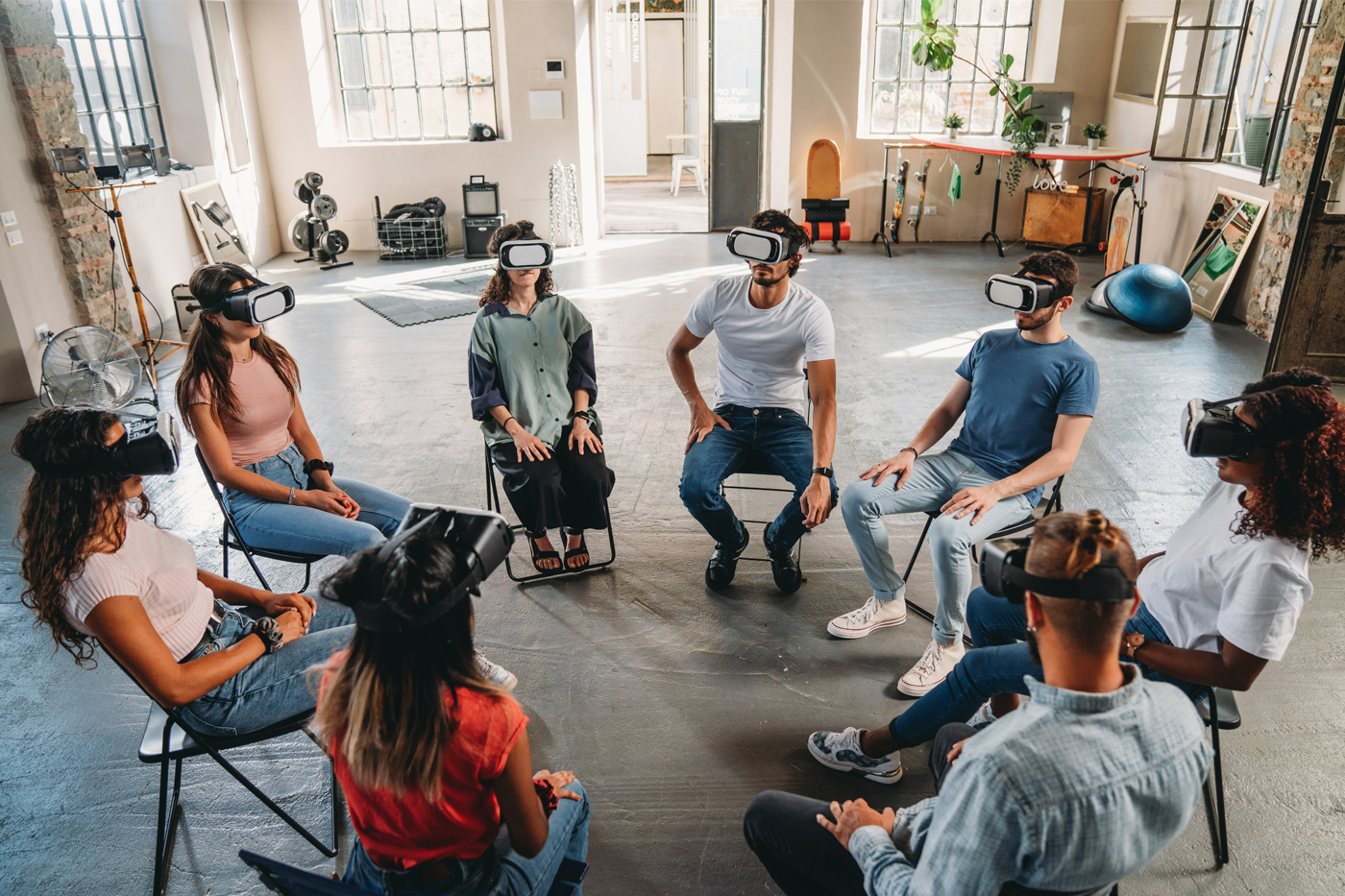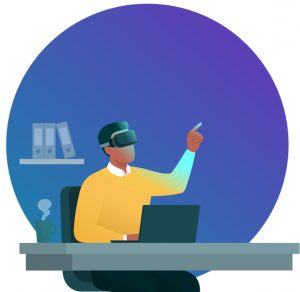Virtual Reality: Real Salvation in the Mental Health Space
Metaverse platforms could change the game in a post-Covid world.
Metaverse platforms could change the game in a post-Covid world.

By Shein Shanin
The year is 2020. Like many in the world, Michelle is feeling isolated and depressed. Living alone in her small New York apartment, Michelle learns that her mother in Texas has just passed away from Covid-19. Unable to go out and seek help, her colleagues at the bank, who see her via video calls, notice a change in her usual bubbly demeanour but aren’t able to provide physical or mental support. Her work begins to deteriorate and eventually, she worries that she might lose her job.
Enter virtual reality (VR), a simulated experience that uses 3D head-mounted devices (HMDs) and pose-tracking technology to immerse users in a digitally constructed world.
In the VR world, Michelle discovers Death Q&A, a digital space for individuals to open up about grief, loss, and mortality under the veil of anonymity. Creating an avatar, she attends the weekly hour-long sessions on the platform together with dozens of other people – each represented by an avatar to protect their identity – who come together to candidly express their deepest, darkest feelings shared with no one else…except other avatars in the metaverse. Free from the fear of judgment, Michelle has finally found her tribe.
But what exactly is the metaverse? Simply put, it is an immersive virtual world that is accessed using VR or augmented reality HMDs. The metaverse is where physical and digital lives overlap and has been called an “embodied internet” by Mark Zuckerberg, CEO of Meta (formerly Facebook).
Like many other metaverse platforms, Death Q&A is littered with avatars, providing a form of escapism and anonymity that is increasingly becoming a way for many like Michelle to regain control of their mental health. However, it needs to be pointed out that these types of virtual platforms are not a replacement for therapy but an accessible alternative for people in times of need.
A study by the World Health Organization (WHO) found that 30% to 80% of people with mental health challenges never seek treatment. This is due to numerous complex reasons, including stigma, a lack of awareness, limited access to treatment or resources, financial constraints, or a sense of bereftness in seeking much-needed support.
However, when offered treatment by their employers, the uptake by staff speaks for itself. According to a July 2022 survey titled Banker Burnout: A Temperature Check of over 200 financial service professionals jointly produced by UpSlide and Censuswide:
The report also found that 43% of banks now have measures to foster and champion employee well-being with high take-up rates. For example, when NatWest Bank launched its free online therapy courses for employees in September 2020, around 5,500 staff signed up within the first six months.

In March 2022, a scientific brief by the WHO entitled Mental Health and Covid-19: Early Evidence of the Pandemic’s Impact, reported a 25% increase in anxiety and depression during the first year of the pandemic, prompting 90% of surveyed countries to include mental health and psychosocial support in their Covid-19 response plans, spurring the need for digital health solutions.
This technological boom in the digital mental health space has accelerated the growth of its user base, particularly in the VR metaverse realm.
The metaverse can become a space to run real-life simulations, providing a safe environment for the management of mental health disorders such as anxiety, stress, eating disorders, attention deficit disorders, post-traumatic stress disorder and many more conditions. Removing the barrier and stress of an in-person session is especially helpful for an individual who is already suffering from mental trauma.
Technologies such as this are changing the way we think about solutions for mental health. As seen with Death Q&A, the metaverse can provide a sense of community and bring about transformation, promising the delivery of personalised mental health care whilst reducing its stigma.
In their multi-award-winning 1996 song Virtual Insanity, English funk-acid band Jamiroquai predicted a dystopian future where barely-functioning humans cling on to technology to our detriment:
Future’s made of virtual insanity
Now always seem to be
governed by this love we haveFor useless twisting,
our new technologyOh, now there is no sound,
for we all live underground
But is it really all that bleak given inventions like the metaverse?
The digital mental healthcare market has seen rapid growth in investments over the past few years spurred on by the convergence of new technologies like blockchain, artificial intelligence (AI), augmented reality, and VR. According to Market Research Future’s research report Digital Mental Health Market, the global market size was valued at USD19.5 billion in 2022 and is projected to be worth USD71.1 billion by 2030.
Aside from atypical tech companies like Meta and Microsoft investing in their future versions of the metaverse, Accenture has also emerged as a contender. As at February 2023, the consulting firm has approximately 245 metaverse-related pilots and proof-of-concept solutions built at Accenture Labs, as well as more than 600 patents filed within Accenture’s Metaverse Continuum Group.
In 2022, it invested in BehaVR, a leading innovator in VR, digital wellness, and therapeutics experiences – by raising an initial USD13 million in Series B funding. The latter has since merged with OxfordVR, a spin-off from Oxford University’s research on VR use in automated psychological treatments.
Although VR has been hailed as the future of mental health management, the fact remains that it is a relatively new technology and its sky-high start-up costs remain a barrier to entry for most companies.
Another downside is a lack of standardisation among VR platforms, specifically in HMD models, making it difficult for developers to create consistent content. Oculus Quest, HTC Vive, and Samsung Gear VR are among the more popular platforms out there, with each offering its own set of features and capabilities. Corporates, developers, and psychologists will need to select the platform that best meets their needs, but with rapid advancement in the field, it’s likely the technologies – software and hardware – will need to be updated quickly and often.
As with all nascent industries, almost all of these VR therapies are largely unregulated and suffer from low-quality evidence based on a limited number of controlled trials. More research is still needed to determine its long-term efficacy for treating various behavioural and cognitive diseases and research will take time to bear fruit.
As the market for VR continues to evolve, it does seem inevitable that it will be a part of all of our lives in the not-so-distant future, blurring the distinction between physical and virtual realities as more investments are directed towards this sector.
It’s still some ways off but corporates need to be part of that change and embrace the fluidity of the future. It is time for them to stake a claim in the ever-expanding metaverse.
China has developed its own unique market given its large demand and the rapid rise of the internet. With internet users in China hitting 1.05 billion in June 2022 according to data released by the China Internet Network Information Center, there is space for online mental health services to grow.
However, the country suffers from a supply-demand imbalance for mental health care, where access to therapy is extremely limited. A 2019 paper, Analysis of China’s Mental Health Resources, published in the 2019 edition of the Chinese Journal of Health Policy highlighted that with a massive population of 1.4 billion people, the market was severely underserved with only 1,000 rehabilitation psychiatrists, 1,500 mental health social workers, and 3,000 psychotherapists. In 2020, mental health accounted for less than 2% of total healthcare spending.
Policy support to promote the national development of the mental health industry has been significant. A major turning point occurred in 2002 when China’s first National Mental Health Plan was introduced. Then in 2013, the first Mental Health Law came into effect after 27 years of debate. This was followed by the landmark Healthy China 2030 Blueprint in 2016 and a new guideline in 2019 that cites mental health as one of the country’s major health concerns.

Given the country’s increasing awareness of mental health, and its hunger for rapid adoption, expansion and evolution of new technology, AI and VR has been seen as a way to revolutionise psychotherapy, open new frontiers, and provide individualised support.
With that said, the VR market in China is poised for immense growth over the next few years. A report by IDC, Worldwide Augmented and Virtual Reality Spending Guide, states that the VR market in China is expected to reach a compound annual growth rate of 43.8% in the five years leading up to 2026. The market research firm also predicts that IT-related expenditure in China’s AR/VR market will increase from USD2.13 billion in 2021 to USD13.08 billion in 2026.
Although the country has yet to produce its own mental health applications in VR, it has been working with global healthcare providers to develop this burgeoning industry.
For example, the US- and China-based company, Cognitive Leap, is using VR to break the stigma of mental illness in China. Cognitive Leap focuses on “brain health” instead of “mental illness”, a term that works better in Chinese characters and is better received in the region. It uses a clinical-grade VR attention deficit hyperactivity disorder (ADHD) assessment tool developed specifically to early detect, monitor, and treat children with ADHD.
Then there is also ‘Yes I Can’, Asia’s first VR therapy solution, jointly launched by AXA Hong Kong, Chinese University of Hong Kong, and OxfordVR in 2019 as a new mental health platform to tackle severe anxious social avoidance.
Shein Shanin is Associate Content Producer at Akasaa, a boutique content development and consulting firm.